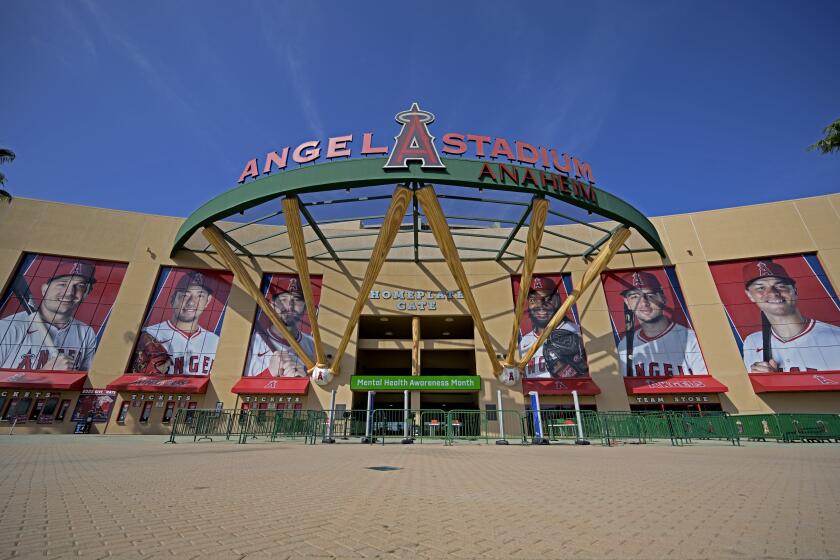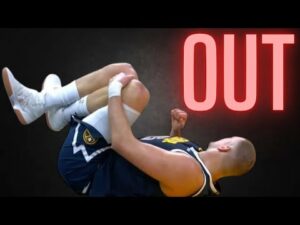
Anaheim’s Surprising Cut of Angels Ticket Sales Revealed — You Won’t Believe the Numbers!

Anaheim’s budget is staring down a hefty estimated deficit of $64 million this year—that’s no small potatoes. Every dollar, every nickel, really counts right now. So, when you consider the local baseball team’s lackluster on-field performance, the city’s take from Angels ticket sales feels less like a windfall and more like a drip. Until the final Sunday, Anaheim wasn’t even sure it’d see a single cent from ticket revenue.
Here’s the wrinkle: the Angels’ lease to play at the city-owned stadium includes a clause making the team dish out $2 to Anaheim for every ticket sold above 2.6 million. By the last game of the regular season, the struggling Angels squeaked past that mark by a mere 15,506 tickets. The city’s cut? A modest $31,012.
Those numbers come a long way from brighter days when postseason runs helped swell ticket payments to city coffers—once topping over $1.6 million in 2006, fueled by a record-setting attendance. Yet, as success faded and the post-pandemic slump tightened its grip, Anaheim’s share has shriveled, touching their pockets only twice in six years.
It’s a tangled history. The stadium lease, penned back in 1996 between the city and Walt Disney Co., set that challenging 2.6 million attendance bar—largely optimistic at the time. When Arte Moreno took over the Angels in 2003, buoyed by championship pedigree and star talent, ticket sales surged, and city revenues followed suit, peaking through the 2000s. But now, with the team enduring the longest playoff drought in MLB and declining attendance, those checks have mostly dried up. Parking and other stadium events offer some revenue relief, but ticket sales remain the primary lifeline for Anaheim.
The lease also exempted the Angels from paying rent after Disney funded most of the stadium’s renovation, leaving hopes pinned on parking lot developments that never materialized. Attempts by Moreno to purchase the stadium and develop surrounding property have twice been rebuffed by city officials amid past controversy. Recently, talks have resumed, but a comprehensive property assessment is underway before further moves—and the stadium lease currently extends through 2032, with options beyond.
So, Anaheim’s gamble on baseball’s hometown team continues—playing out in empty seats and modest checks, a real portrait of patience and persistence for a city counting every penny.

The city of Anaheim faces an annual deficit projected at $64 million, so every little bit helps. And, because of the Angels’ poor play, that is exactly what the city got in ticket revenue from its hometown baseball team this year: just a little bit.
Until Sunday, in fact, the city did not know for certain that it would get even a penny in ticket revenue.
Advertisement
As part of their lease to play in the city-owned stadium, the Angels are required to pay the city $2 for every ticket sold beyond 2.6 million. On Sunday, the final day of the regular season, the last-place Angels topped that threshold by 15,506. The payment to Anaheim: $31,012.
In better times — amid a run of six postseason appearances in eight years — the city received more than $1 million annually in ticket revenue. The high point: $1,613,580 in 2006, when the team sold a record 3,406,790 tickets.
Read more: Shaikin: The Angels finished in last place again. How does owner Arte Moreno plan to fix it?
Although major league teams do not disclose their financial data, Forbes estimated the Angels generated $120 million in ticket revenue last year. The Angels sold 2.58 million tickets last year, so the city received none of that revenue.
Advertisement
When the city and the Walt Disney Co. — then the owner of the Angels — agreed on that stadium lease in 1996, the 2.6 million figure was largely aspirational. The Angels sold 1.8 million tickets that year. In the previous 30 seasons playing in the stadium, the Angels’ attendance had topped 2.6 million only four times.
In 2003, however, Arte Moreno bought the Angels from Disney, inheriting a Cinderella World Series championship team and fortifying it with premier free agents, including Hall of Famer outfielder Vladimir Guerrero and star pitcher Bartolo Colon.
The city first received ticket revenue that year, when the Angels’ attendance shot past 2.6 million and topped 3 million. Under Moreno’s ownership, the Angels won five division championships in the next six years and sold more than 3 million tickets every year from 2003-2019.
The Angels have not made a postseason appearance in 11 years — the longest drought in the major leagues — and have not posted a winning record in 10 years. Attendance dropped sharply after the pandemic, and Anaheim has received a share of the Angels’ ticket revenue only twice in the past six years: this year, and $81,150 in 2023.
Advertisement
The city does receive revenue from parking and other stadium events, but only after certain thresholds have been reached. Under the lease, ticket sales are the primary driver of city revenue.
The Angels pay no rent under their lease, since Disney paid all but $20 million of a $117-million stadium renovation. The city said it would make its money back from development of the parking lots around the stadium, which has not happened in the three decades since the lease took effect.
Read more: A gondola to Dodger Stadium? How about a gondola to the Big A?
Moreno twice has agreed to deals in which he would own the stadium and develop the land around it, but the city backed away both times: in 2014, after then-mayor Tom Tait objected to leasing the land to Moreno for $1 per year; and in 2022, after the FBI taped then-mayor Harry Sidhu saying he would ram a deal through and ask the Angels for a million-dollar contribution in return. (Sidhu was sentenced to prison last March, after signing a plea agreement that specified he had leaked confidential negotiating information to the Angels. The government has not alleged the Angels did anything wrong.)
Advertisement
In April, current mayor Ashleigh Aitken invited Moreno for a new round of discussions. He made no commitment, and the city subsequently decided to put any talks on hold until the completion of a property assessment designed to determine how many hundreds of millions of dollars would be needed to keep the 1966 stadium viable for decades to come. That study is expected to be concluded next year.
In January, the Angels exercised an option to extend their stadium lease through 2032. They have two other options to extend the lease if they wish: one through 2035, the other through 2038.
This story originally appeared in Los Angeles Times.

































Post Comment